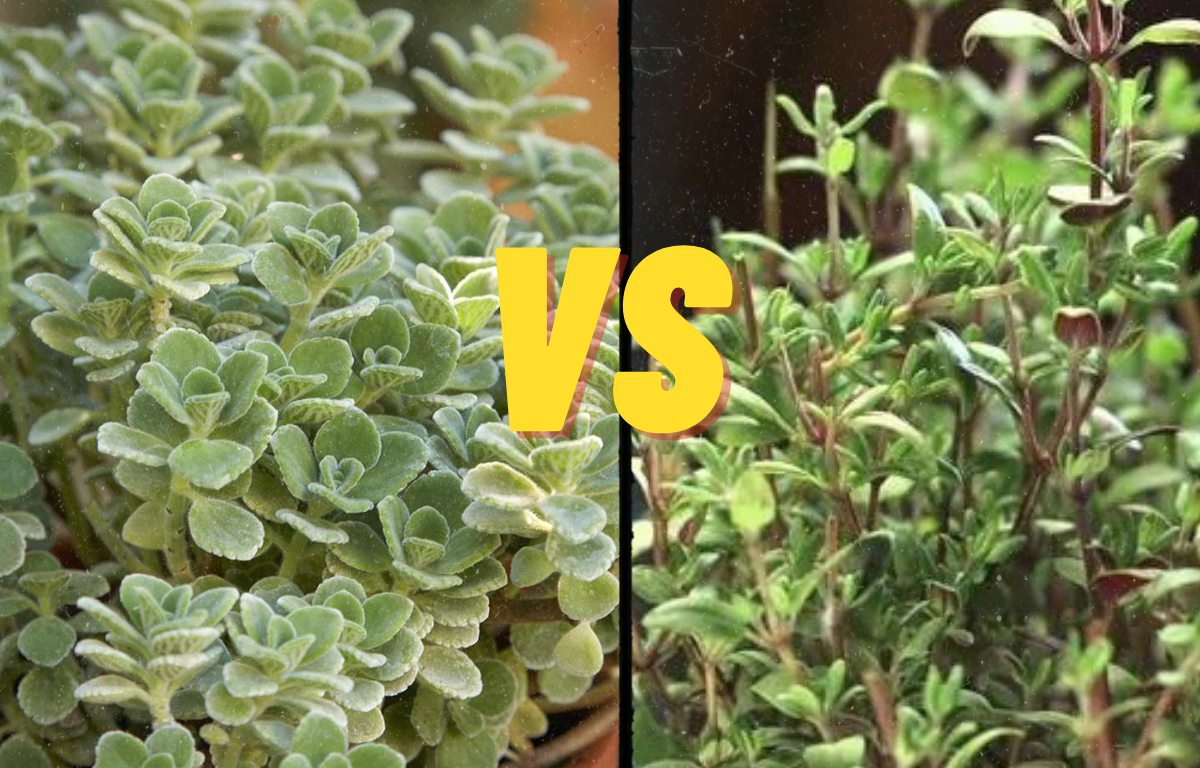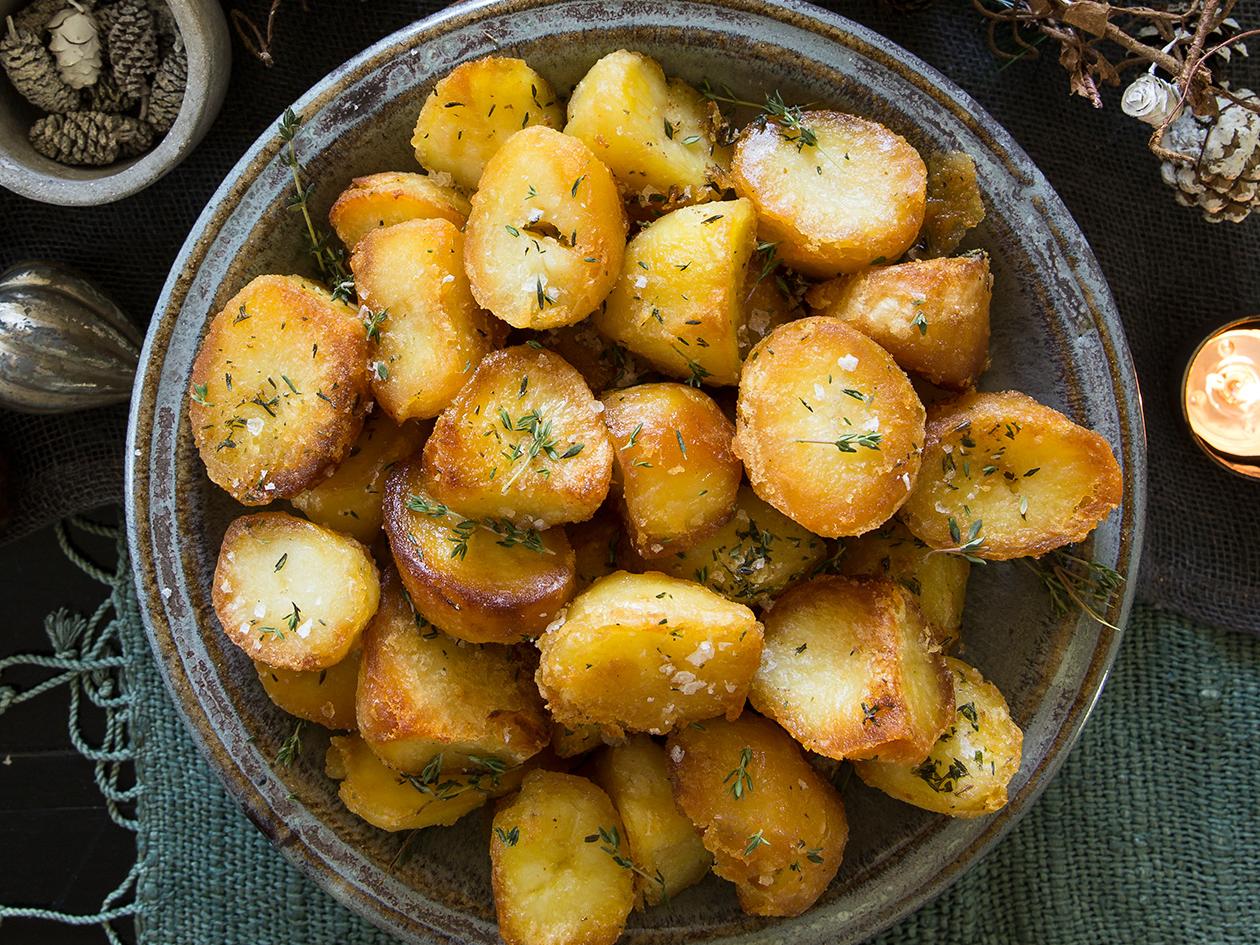Best Companion Herbs For Thyme
Thyme is a versatile herb that can be used in a variety of dishes, from savory stews to sweet desserts. It's also a popular choice for companion planting, as it can help to deter pests and attract beneficial insects.
If you're looking to add thyme to your garden, it's important to choose the right companion plants. Some herbs will complement thyme's flavor and growth requirements, while others may compete with it for resources or attract pests.
Here are some of the best companion herbs for thyme:
- Rosemary: Rosemary is a classic companion plant for thyme. Both herbs are members of the mint family and prefer similar growing conditions. They also have a complementary flavor profile, making them a great choice for cooking together.
- Oregano: Oregano is another herb that pairs well with thyme. Both herbs have a strong, pungent flavor that can be used to add depth and complexity to dishes. They also share similar insect-repelling properties.

- Marjoram: Marjoram has a milder flavor than thyme, but it still complements the herb well. It's also a good choice for companion planting because it can help to attract beneficial insects, such as bees and butterflies.

- Sage: Sage is a hardy herb that can tolerate hot, dry conditions. It's a good choice for companion planting with thyme because it can help to repel pests, such as cabbage moths and carrot flies.
- Lavender: Lavender is a beautiful and fragrant herb that can also help to deter pests. It's a good choice for companion planting with thyme in vegetable gardens, as it can help to protect crops from cabbage moths, whiteflies, and other insects.

- Chamomile: Chamomile is a calming herb that can also help to attract beneficial insects. It's a good choice for companion planting with thyme in herb gardens, as it can help to create a relaxing and inviting atmosphere.

- Onions and garlic: Onions and garlic are both alliums, which means they have a strong sulfurous smell. This smell can help to deter pests, such as aphids and spider mites. Thyme is also an herb that can repel pests, so planting it near onions and garlic can create a double whammy of pest protection.
- Potatoes: Thyme can help to repel pests, such as Colorado potato beetles, from potatoes. It can also help to improve the flavor of potatoes.

- Eggplants: Thyme can help to repel pests, such as moths, from eggplants. It can also help to improve the flavor of eggplants.

- Blueberries: Thyme can help to attract beneficial insects, such as bees, to blueberries. This can help to improve the pollination of blueberries and increase the yield of fruit.

When planting thyme with other herbs, it's important to consider the size and growth habits of the plants. Some herbs, such as rosemary and sage, can grow quite large, so it's important to give them enough space to spread out. Other herbs, such as thyme and oregano, are more compact and can be planted closer together.
It's also important to consider the sun and soil requirements of the herbs you're planting together. Most herbs prefer full sun and well-drained soil, but there are a few exceptions. For example, chamomile prefers partial shade and lavender prefers well-drained, sandy soil.
By following these tips, you can create a thriving herb garden with thyme as a star player.
Thyme is a versatile herb that can be used in a variety of dishes, but did you know that it can also be a beneficial companion plant for other herbs and vegetables? When planted together, thyme can help to repel pests, attract beneficial insects, and improve soil quality.
Some of the best companion plants for thyme include:
- Rosemary: Rosemary and thyme are both members of the mint family, and they thrive in similar conditions. They can be planted together in the same bed or container, and they will help to deter pests such as cabbage worms and tomato hornworms.
- Oregano: Oregano and thyme have similar flavors, and they can be used interchangeably in many dishes. They can also be planted together to attract beneficial insects such as ladybugs and hoverflies, which help to control pests.
- Lavender: Lavender is a beautiful and fragrant herb that can also help to repel pests. When planted near thyme, lavender can help to keep away cabbage moths, carrot flies, and other insects.
- Sage: Sage and thyme are both hardy herbs that can tolerate hot, dry conditions. They can be planted together in a sunny spot, and they will help to improve the flavor of each other's leaves.
If you're looking for more information about thyme companion plants, I recommend visiting Gardenia Inspiration. This website provides a comprehensive list of herbs that can be planted together, as well as information about the benefits of companion planting.
FAQ of thyme companion herbs
- What are some good companion herbs for thyme?
Thyme is a versatile herb that can be planted with a variety of other herbs and vegetables. Some of its best companion plants include:
Rosemary: Rosemary and thyme are both Mediterranean herbs that enjoy similar growing conditions. They can be planted together in the same pot or bed, and they will help each other to thrive.
Sage: Sage and thyme are both members of the mint family, and they can be planted together to help repel pests. Sage is also a good companion plant for tomatoes, as it can help to prevent blossom end rot.
Marjoram: Marjoram and thyme have similar flavors and can be used interchangeably in cooking. They can also be planted together in the garden, as they will help each other to grow well.
Oregano: Oregano and thyme are both strongly flavored herbs that can be used to add flavor to a variety of dishes. They can also be planted together in the garden, as they will help each other to attract beneficial insects.
Chives: Chives and thyme are both edible flowers that can be used to garnish dishes. They can also be planted together in the garden, as they will help each other to repel pests.
What are the benefits of planting thyme with other herbs?
There are a number of benefits to planting thyme with other herbs. For example:
Thyme can help to repel pests. The strong scent of thyme can deter a variety of pests, including cabbage moths, spider mites, and whiteflies.
Thyme can help to attract beneficial insects. The nectar of thyme flowers attracts beneficial insects, such as ladybugs and hoverflies, which help to control pests.
Thyme can improve the flavor of other herbs. The strong flavor of thyme can enhance the flavor of other herbs, such as tomatoes, eggplant, and beans.
Thyme can help to improve the drainage of soil. Thyme is a shallow-rooted plant that can help to improve the drainage of soil. This is beneficial for other herbs that are susceptible to root rot.
Thyme can help to suppress weeds. The dense growth of thyme can help to suppress weeds. This is beneficial for other herbs that are susceptible to competition from weeds.
How deep should I plant thyme seedlings?
Thyme seedlings should be planted 1/4 inch deep. They should be spaced about 6 inches apart.
- What are some common mistakes to avoid when planting thyme?
Some common mistakes to avoid when planting thyme include:
- Planting thyme in too much shade. Thyme needs full sun to thrive.
- Planting thyme in wet soil. Thyme does not tolerate wet soil.
- Planting thyme too close to other plants. Thyme needs room to spread.
- Not watering thyme regularly. Thyme needs regular watering, especially during hot weather.
- Not fertilizing thyme regularly. Thyme benefits from regular fertilization, especially during the growing season.
Image of thyme companion herbs
5 different images of thyme companion herbs from Pinterest:
- Thyme and strawberries. Thyme helps to deter worms from strawberries, which can be a major pest for this crop.

- Thyme and cabbage family crops. Thyme can help to repel cabbage moths and other pests from cabbage, broccoli, cauliflower, and other members of the cabbage family.

- Thyme and tomatoes. Thyme can help to improve the flavor of tomatoes and also repel tomato hornworms.

- Thyme and eggplants. Thyme can help to repel eggplant flea beetles.

- Thyme and potatoes. Thyme can help to repel potato beetles and other pests.


Post a Comment for " Best Companion Herbs For Thyme"